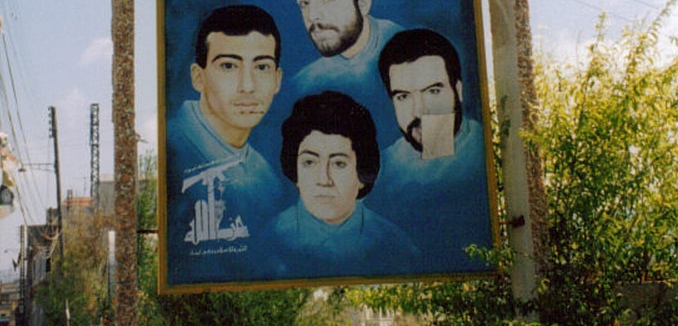Recent weeks have seen an escalation of tensions between Hezbollah in Israel. Attacks on the Golan from Lebanon have brought about IAF responses to restore deterrence.
The aggressiveness of Hezbollah and its growing threat to Israel raise the specter of another war. Lee Smith, senior editor at the Weekly Standard, asks why Hezbollah is seemingly risking a confrontation with Israel. Smith observes that in 2006, Hezbollah’s leader, “Hassan Nasrallah, said that had he known how the Israelis would respond, he never would have taken their soldiers in the first place.” Smith’s answer is that Hezbollah isn’t in this conflict for itself.
The answer is that it’s not Nasrallah calling the shots. Hezbollah is Iran’s long arm in Lebanon. Accordingly, its activities on Israel’s northern border, taken together with the maneuvers of other Iranian allies on the southern frontier—weapons transfers to Gaza-based militants and their rocket fire on Israel—are evidence of a new Iranian boldness. Perhaps as a consequence of the interim nuclear agreement Iran struck last November with the P5+1 powers (the United States, Russia, China, the United Kingdom, France, and Germany), Tehran imagines that the White House will rein in Jerusalem. But if that’s what Obama is advising, Israel isn’t paying attention. Israel’s aggressive defense suggests that if Iran keeps pushing, it may soon find itself in open warfare.
Smith concludes that Israeli responses are not just meant to “stop Iran’s allies on its borders” but “also that it’s willing to go to the source—states that sponsor terrorist war, like Syria and, if the clerical regime continues to escalate, perhaps Iran, too.”
Hezbollah’s recent assertiveness has been manifest in other ways. Reports that Hezbollah has improved its infrastructure and arsenal have increased concern in Israel. In addition, Hezbollah’s recent success in Syria has emboldened it, further threatening Lebanon’s security and politics.
These manifestations of Iran’s projection of power through Hezbollah are further proofs that Hezbollah isn’t just “a parochial Lebanese political party with an armed wing.”
Earlier this week, The Tower reported on a major shakeup in the security leadership of Hezbollah, undertaken on Tehran’s orders, in the wake of several attacks on Hezbollah targets by Sunni militants.
Shai Oseran and Stéphane Cohen of The Israel Project wrote in depth about the increasing threat Hezbollah poses to Israel in the March, 2014 issue of The Tower Magazine.
[Photo: cass / Flickr ]




